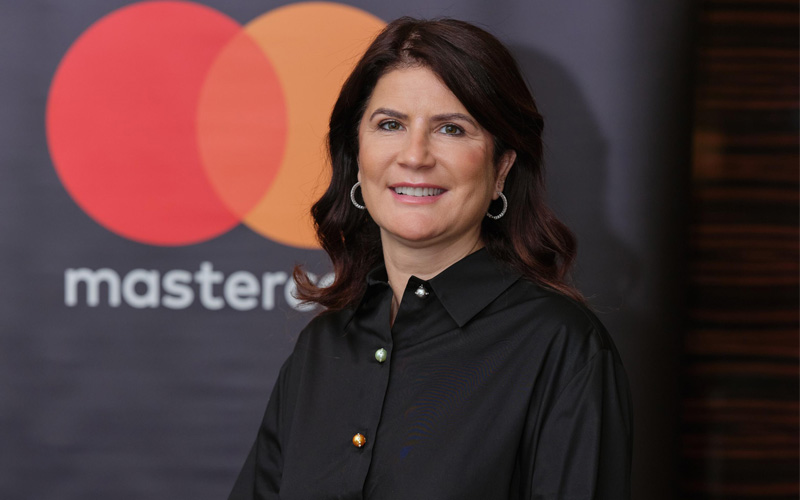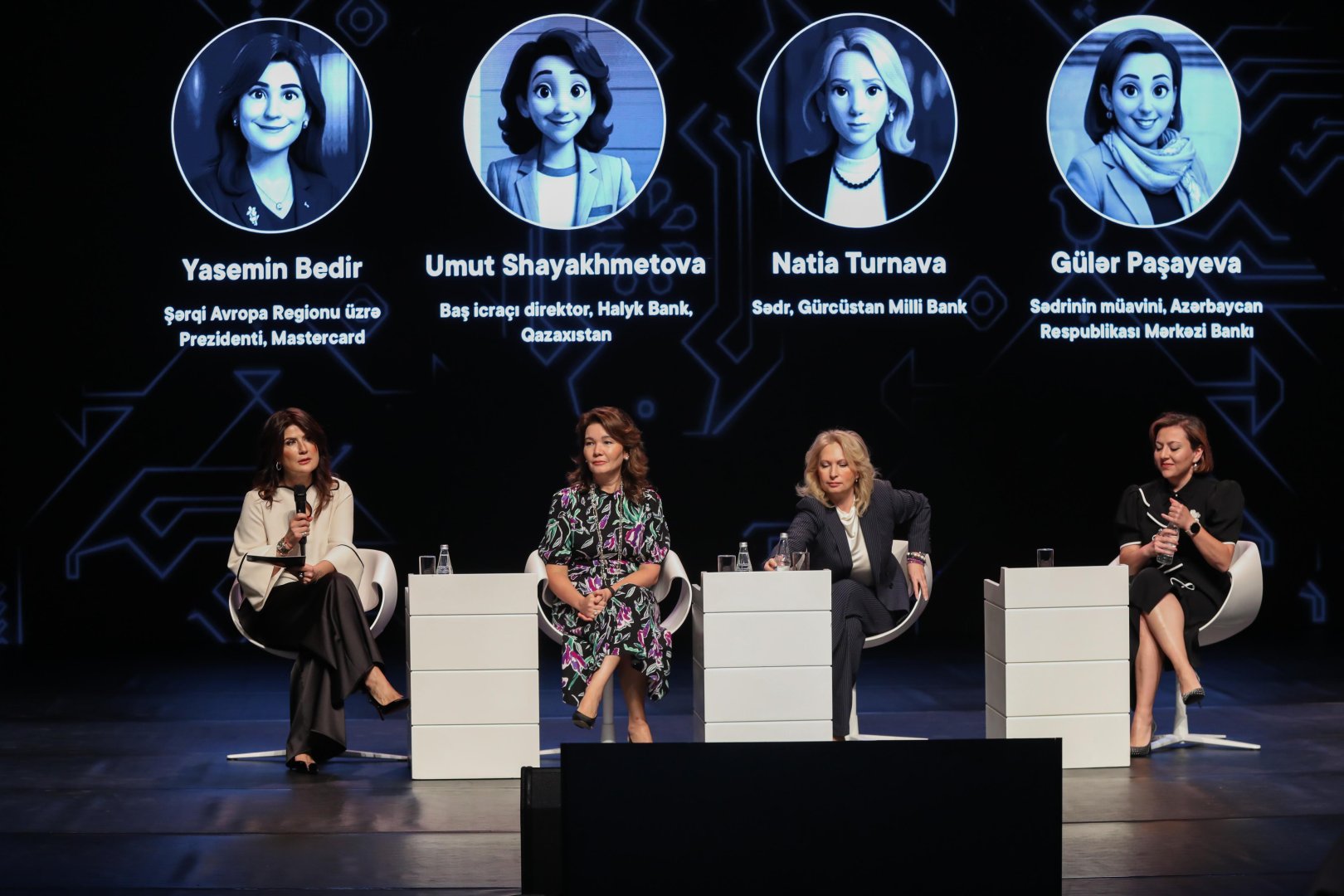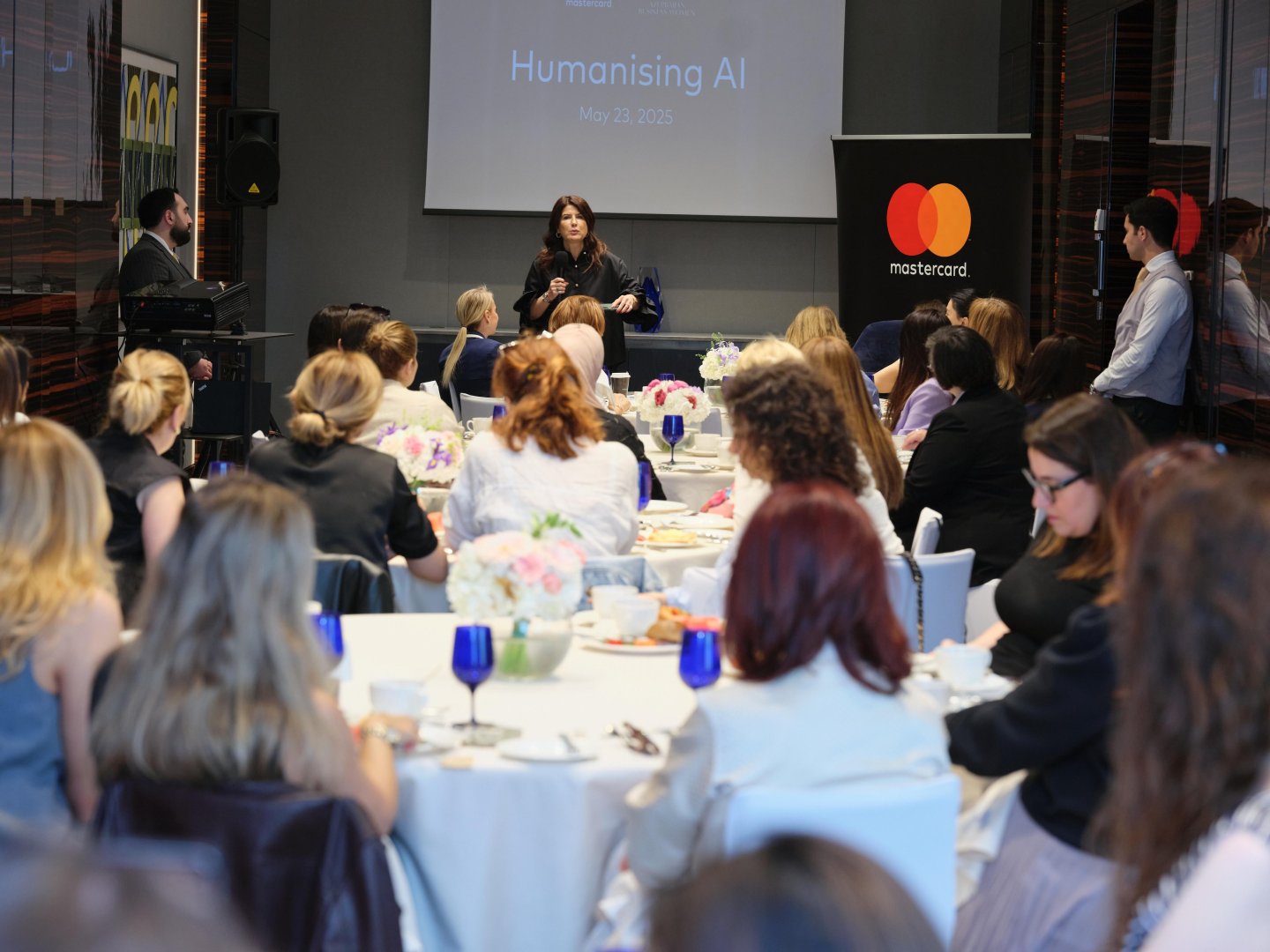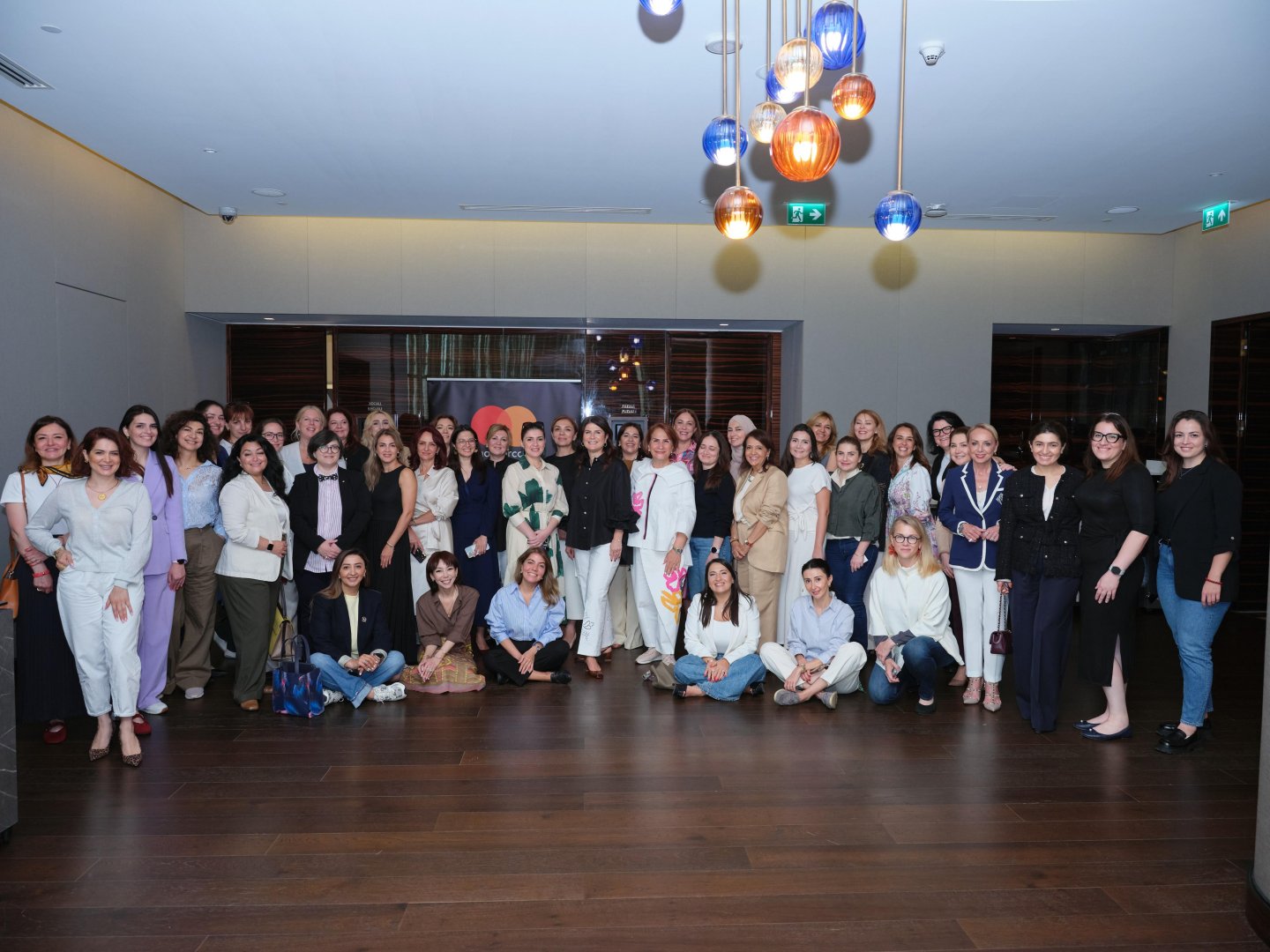Yasemin Bedir, Eastern Europe Division President at Mastercard, made a powerful impact during her recent visit to Azerbaijan, where she led a series of high-level engagements focused on inclusive economic growth and women’s leadership.
Bedir’s visit was marked by a series of meaningful gatherings that brought together prominent Azerbaijani women in finance, technology, and public service. At her initiative, Mastercard hosted a leadership dinner that created space for open dialogue, real questions, and new alliances. The event opened with a keynote by Yasemin Develioğlu, Vice President of Marketing and Communications for Eastern Europe at Mastercard.
The following morning, a networking breakfast for over 40 businesswomen — organized by Azerbaijan Business Women — featured a keynote by innovation strategist Zehra Öney on “Humanizing AI,” sparking rich conversations around responsible tech leadership.
A DEFINING CONVERSATION AT SHE CONGRESS 2025: “THE CURRENCY OF IMPACT”
While in Baku, Bedir also took center stage at SHE Congress 2025, organized by Azerbaijan Business Women. Her panel, titled “The Currency of Impact” became the defining conversation of the event. Joined by:
- Natia Turnava, Governor of the National Bank of Georgia
- Umut Shayakhmetova, CEO and Board Member at Halyk Bank, Kazakhstan
- Gular Pashayeva, Deputy Governor of the Central Bank of Azerbaijan
Bedir reframed leadership not around titles, but around resilience, responsibility, and long-term value. She urged women to speak up — especially when it’s unexpected:
“Impact is not an accessory to leadership — it is the measure of it.It’s not about how high we climb, but how many doors we leave open behind us. If we want systems that serve people, we need to build those systems with women — at every level, from policy design to product development. You should speak up, even when no one expects you to. Some of the most important shifts in my career came from moments when I raised my voice as a junior — not as a leader. Impact begins before the title.”
MARKETING WITH MEANING: YASEMİN DEVELİOĞKU ON EMOTION, EZPERIENCE AND BRAND LOYALT
Yasemin Develioğlu delivered a compelling session on marketing and brand strategy, emphasizing how brand awareness and affection deepen when they connect with human emotion. She highlighted a key shift in consumer behavior — people today are less focused on ownership and more drawn to meaningful experiences, which in turn fosters lasting brand loyalty. As a powerful example of this experiential approach, she announced the launch of Priceless Baku, a local activation of Mastercard’s global platform that brings unforgettable moments to life, tailored to the cultural heartbeat of the city.
WHAT THE PANEL REVEALED
The bold and honest stories of change and challenges that panelists shared shows the impact of women leaders not only in finance but also on a societal level.
Natia Turnava, the first-ever female Governor of Georgia’s Central Bank, the former Minister of Economy of Georgia, spoke about pushing for gender-balanced leadership in high-stakes environments. Under her leadership, 5 out of 9 supervisory board members are now women. She also led reforms increasing board quotas in Georgian banks from 20% to 40% by June 2025.
“This isn’t just optics — it’s about better decisions. Women tend to manage risk differently, and in volatile markets, that balanced thinking is critical.”
Umut Shayakhmetova highlighted Kazakhstan’s progress: 40% of top 10 bank CEOs are now women, and more are entering fields like IT and AI that were once considered male-only. But she was candid about the remaining glass ceilings:
“We’ve moved from proving ourselves to building systems that prove others can follow.”
Gular Pashayeva, Azerbaijan’s first female board member in the Central Bank, noted that while women make up 40% of financial sector employees, they remain underrepresented at senior levels. Recent regulatory changes now require systemically important banks to include at least one woman on their boards.
The conversation also brought hard data into focus. For example, in Georgia, only 16% of businesses with credit are owned by women, and those women-owned businesses hold just 7% of the total credit volume. Recognizing this gap, Georgia’s Central Bank has begun collecting sex-disaggregated lending data and joined the global Women Entrepreneurs Finance Code initiative to improve access and design more inclusive lending practices.
“When women see women in decision-making roles, trust increases,” said Turnava.“It’s not only about fairness — it changes how capital flows.”
The conversation resonated strongly with the audience. A local founder shared, “It’s rare to sit in a room where power and empathy co-exist on stage. I walked out not just inspired, but with ideas on how to redesign our hiring strategy and lending products.”
MASTERCARD: SHAPING THE AGENDA
At Yasemin Bedir’s initiative, Mastercard hosted a leadership dinner for prominent Azerbaijani women from different diffferent businesses. It was a space for open conversation, real questions, and new alliances.
The following morning, Mastercard networking breakfast for over 40 local businesswomen, organized by Azerbaijan Business Women, took place, featuring a keynote by innovation strategist Zehra Öney, titled “Humanizing AI.” Her talk explored how AI must be shaped by ethics, diversity, and trust — prompting a rich dialogue around responsible tech leadership.
“For me, the real takeaway was how many of us are thinking the same things — but rarely have the space to say them out loud,” said one participant. “The breakfast reminded me that change begins with conversation.”
LEADING THE REGION TOWARD INCLUSIVE GROWTH
As Yasemin Bedir said: “We are not here to add color to the agenda. We are here to shape it. When we talk about impact, we’re really talking about the legacy we leave behind — not just in numbers, but in people’s lives. In Azerbaijan, I saw firsthand how powerful it is when women come together across sectors to shape the future. Whether it’s through policy, technology, or finance, we must design systems that reflect the diversity of the people they serve. That’s how we build economies that are not only stronger, but fairer — and that’s the kind of leadership Mastercard is committed to."”
END
About Mastercard
Mastercard powers economies and empowers people in 200+ countries and territories worldwide. Together with our customers, we’re building a sustainable economy where everyone can prosper. We support a wide range of digital payments choices, making transactions secure, simple, smart and accessible. Our technology and innovation, partnerships and networks combine to deliver a unique set of products and services that help people, businesses and governments realize their greatest potential.












